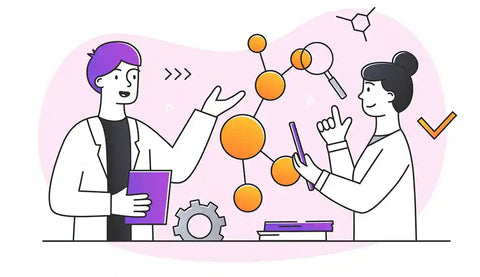The Dark Side of Peer Reviews, or Should That Be Dark Sides?
If you have ever had to remove all hints of your identity from an article before submitting it to a scientific journal, you have probably experienced a double-blind peer review. In such a reviewing process, neither the author nor the reviewer knows the identity of the other, but as the Knoepfler blog notes, the much more usual practice is single-blind reviewing, in which the author does not know the identity of the reviewer, but the reviewer is well aware of who the author is: http://bit.ly/1MpR7cJ. This process, as the blog explains, can create opportunities for scientists who are acting as reviewers to reject or delay the publication of work by other scientists for what are personal rather than scientific reasons.
When grant proposals and applications are reviewed, both the research projects and the scientists proposing them are evaluated, so there is a practical reason for reviewers to know who those scientists are. When it comes to reviewing articles submitted to scientific journals, however, the task is usually to review the research that has been done and its presentation in writing, and there seems no obvious reason why reviewers must know the identities of authors. Of course, hiding author identities will not eliminate unjust reviews driven by personal ambition, since a paper shorn of its author’s name can still step on a reviewer’s intellectual toes and trigger jealousy and resentment, all the more if it is very good indeed. However, double-blind reviewing can theoretically prevent reviews, both positive and negative, that are determined more by who has written a paper than by what is written in it, and that is always a good thing. By so doing, such a process can also encourage (and will likely not hinder) impartial reviewing based on scientific reasoning that works to highlight strengths and weaknesses in an article and ultimately contribute to its improvement.
Open reviewing has been suggested as a potential solution to unprofessional and unethical reviewing practices, and there is much to be said for a more open process that will make everyone involved in peer reviews somewhat more accountable for their actions and comments. Yet it may be that wider adoption of double-blind reviewing among scientific journals could act as a deterrent as well, at least to commentary generated by personal feelings towards a paper’s author(s). Having never actually encountered a double-blind review process while submitting my own writing for publication, however, I may be hoping for too much from doubling the dark side, so I would be glad to hear of actual experiences (whether good or bad) with double-blind reviewing.
Why Our Editing and Proofreading Services?
At Proof-Reading-Service.com we offer the highest quality journal article editing, dissertation proofreading and online proofreading services via our large and extremely dedicated team of academic and scientific professionals. All of our proofreaders are native speakers of English who have earned their own postgraduate degrees, and their areas of specialisation cover such a wide range of disciplines that we are able to help our international clientele with research editing to improve and perfect all kinds of academic manuscripts for successful publication. Many of the carefully trained members of our manuscript editing and proofreading team work predominantly on articles intended for publication in scholarly journals, applying painstaking journal editing standards to ensure that the references and formatting used in each paper are in conformity with the journal’s instructions for authors and to correct any grammar, spelling, punctuation or simple typing errors. In this way, we enable our clients to report their research in the clear and accurate ways required to impress acquisitions proofreaders and achieve publication.
Our scientific proofreading services for the authors of a wide variety of scientific journal papers are especially popular, but we also offer manuscript proofreading services and have the experience and expertise to proofread and edit manuscripts in all scholarly disciplines, as well as beyond them. We have team members who specialise in medical proofreading services, and some of our experts dedicate their time exclusively to dissertation proofreading and manuscript proofreading, offering academics the opportunity to improve their use of formatting and language through the most exacting PhD thesis editing and journal article proofreading practices. Whether you are preparing a conference paper for presentation, polishing a progress report to share with colleagues, or facing the daunting task of editing and perfecting any kind of scholarly document for publication, a qualified member of our professional team can provide invaluable assistance and give you greater confidence in your written work.
If you are in the process of preparing an article for an academic or scientific journal, or planning one for the near future, you may well be interested in a new book, Guide to Journal Publication, which is available on our Tips and Advice on Publishing Research in Journals website.








